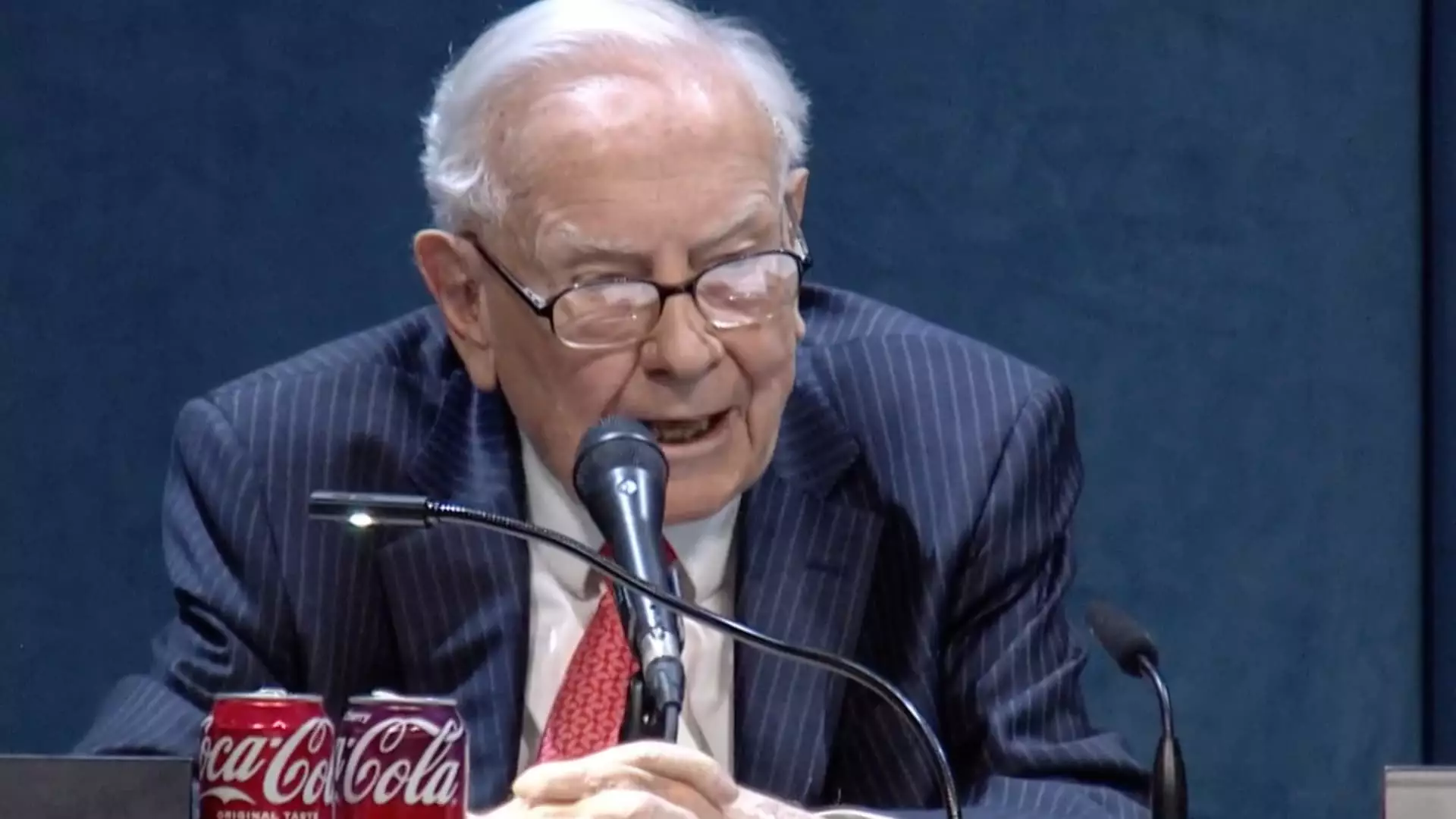In the contemporary landscape of global trade, few topics stir up more anxiety than tariffs, especially under the hard-edged policies that marked the Trump administration. Legendary investor Warren Buffett recently put forth a poignant warning that strikes at the heart of this issue: “Trade should not be a weapon.” This assertion serves as a clarion call against the dangers of adopting protectionist measures that not only jeopardize economic prosperity but also exacerbate international tensions. The very essence of trade is collaboration, and when it’s distorted into a battleground, the outcomes are far from beneficial.
Buffett’s critique of punitive tariffs isn’t merely an expression of economic theory; it represents an urgent plea for sanity in a world replete with turmoil. The notion that slapping tariffs on imports makes one nation “great again” is not just misleading—it’s fundamentally flawed. As Buffett articulates, when trade relationships devolve into adversarial encounters, it risks transforming economic disagreements into real conflict. Tariffs can be viewed as an alarming form of economic warfare, one that could provoke retaliatory measures from countries that find themselves on the receiving end of such policies. In that landscape, no one emerges victorious.
Global Prosperity: A Shared Success
Another striking point from Buffett’s remarks is the interconnectedness of global prosperity. “The more prosperous the rest of the world becomes, it won’t be at our expense,” he noted. This is a critical framework from which to view trade, one that emphasizes mutual benefit rather than envisioned zero-sum scenarios where one’s gain is inherently another’s loss. A thriving world economy fosters environments that are conducive to American prosperity. When nations engage in cooperative trade, they transcend boundaries that could otherwise serve to divide, creating new markets and opportunities for American businesses to flourish.
This interconnectedness also leads to enhanced security for American citizens. When relationships are built on respect and reciprocity, they pave the way for diplomatic channels that can be invaluable in times of geopolitical tension. Tariffs that dismantle these relationships could usher in an era rife with uncertainty, both economically and politically. A nation that isolates itself economically may find its standing in the world diminished, ultimately threatening the long-term security of its own citizens.
The Illusion of Economic Security
Trump’s aggressive tariff strategy, such as the staggering 145% tariffs on Chinese imports, is emblematic of a misguided belief that protecting domestic industries will safeguard the American economy. What it often results in, however, is a wealth of uncertainty that disincentivizes investment and innovation. Buffett’s concerns echo throughout the financial landscape, as seen in the immediate volatility that followed the reintroduction of substantial tariffs. Businesses, particularly those that rely on global supply chains, are left in a precarious position, compelled to reassess strategies amidst rapidly changing economic climates.
The dangers that tariffs pose extend beyond immediate market disruptions. They cultivate a culture of hesitation among investors, who see unpredictability as a barrier to long-term planning. This hesitancy can culminate in stagnant wages, reduced hiring, and an overall decline in economic vitality. The most alarming evidence of this can be observed in Berkshire Hathaway’s own stock selling, where the conglomerate offloaded over $134 billion worth of shares in a mere year. This reflects a broader ambivalence rooted in anxiety—an anxiety that is both justified and dangerous.
Economic Identity: Rediscovering American Strength
Buffett’s insights extend to a broader understanding of the American identity in a globalized world. He emphasizes that the triumphs of the United States aren’t merely products of isolationism but stem from its ability to engage with the global economy effectively. A protective stance against the international community may feel like a form of defense, yet it blinds us to the benefits of participation. No nation can claim the title of “greatness” if it does not engage in the dialogues that shape the 21st century. The future hinges on collaboration, not isolation.
Buffett’s reflections underscore the critical need for a paradigm shift in how we perceive and enact trade policy. We must advocate for solutions that foster dialogue and cooperation rather than division. The costs of tariffs extend far beyond economic equations—they affect human lives, relationships, and the very fabric of international diplomacy. It’s high time we recognize that a fruitful trade environment is not merely beneficial; it is essential.

